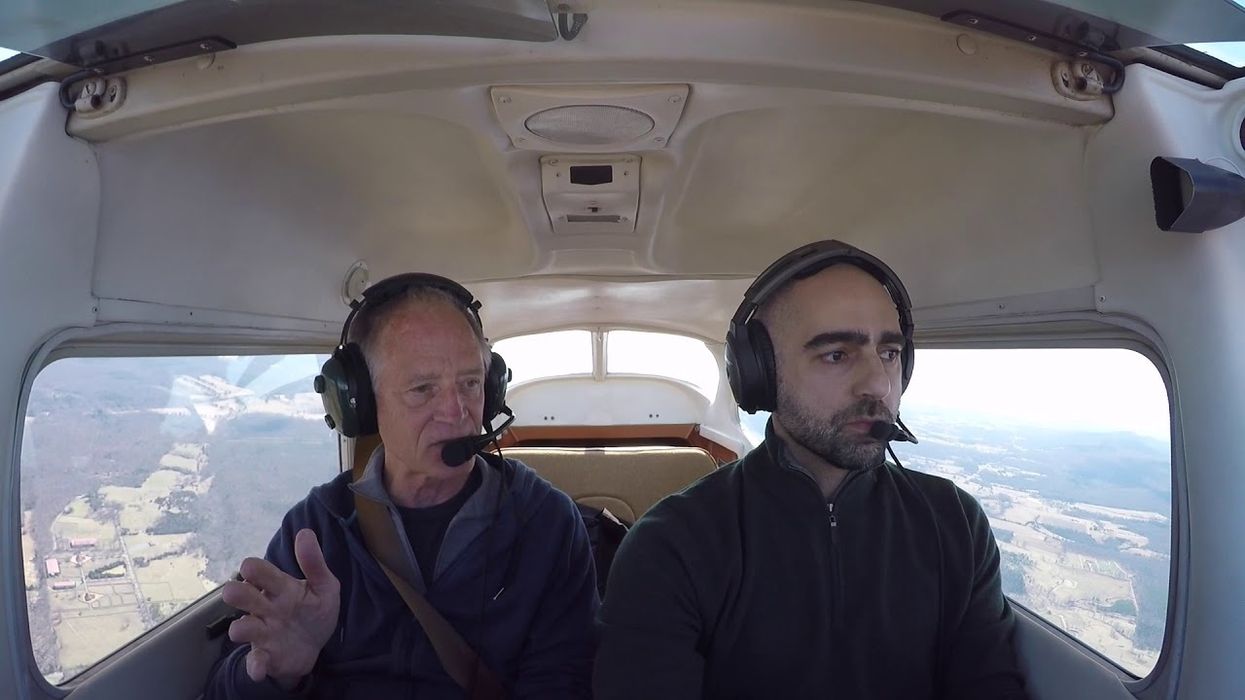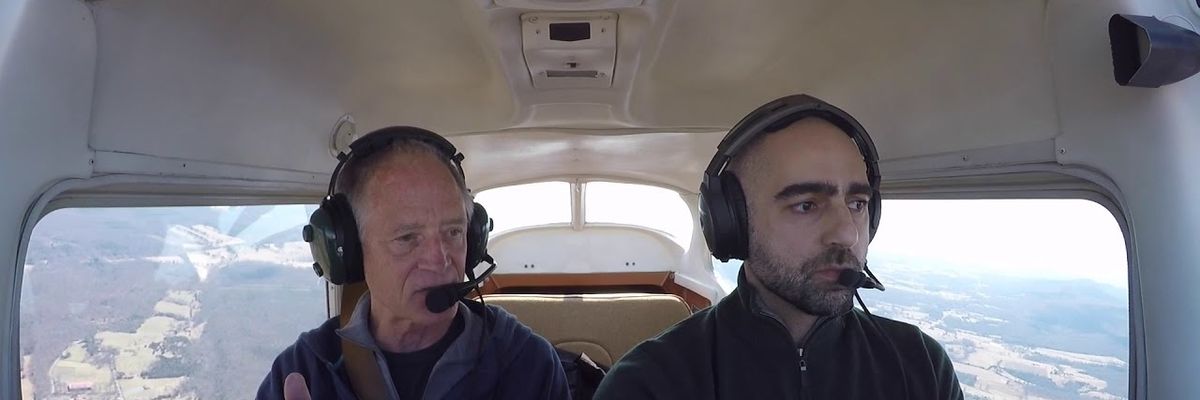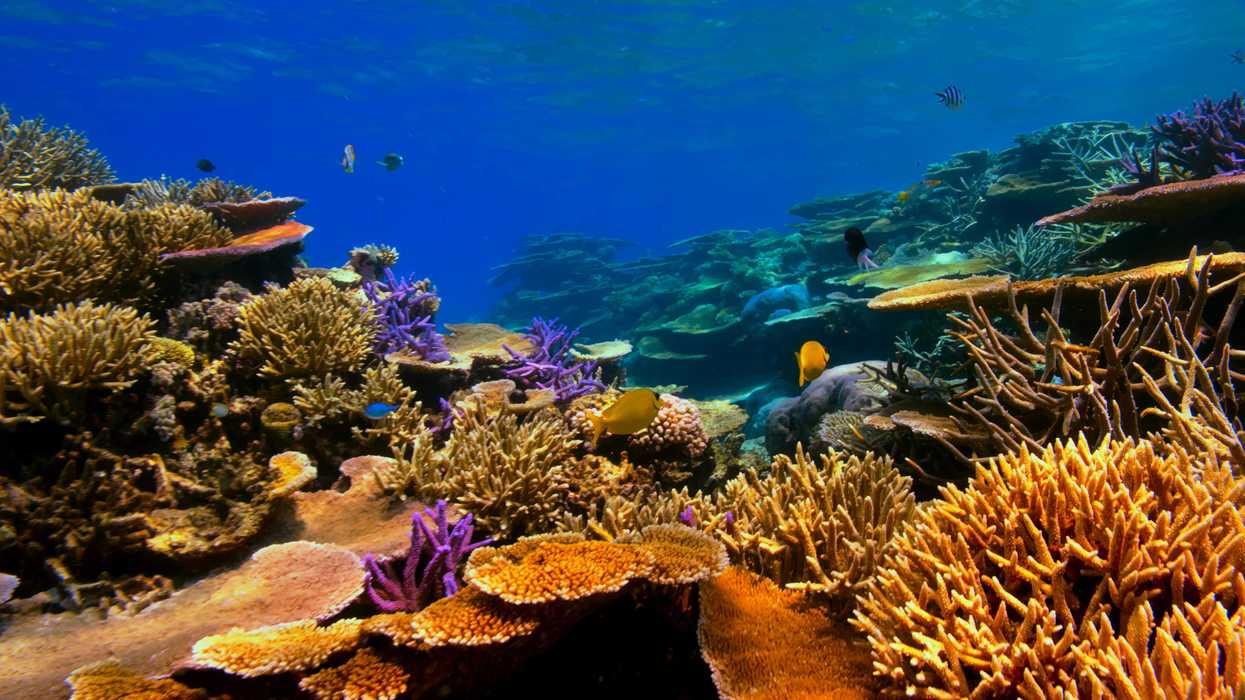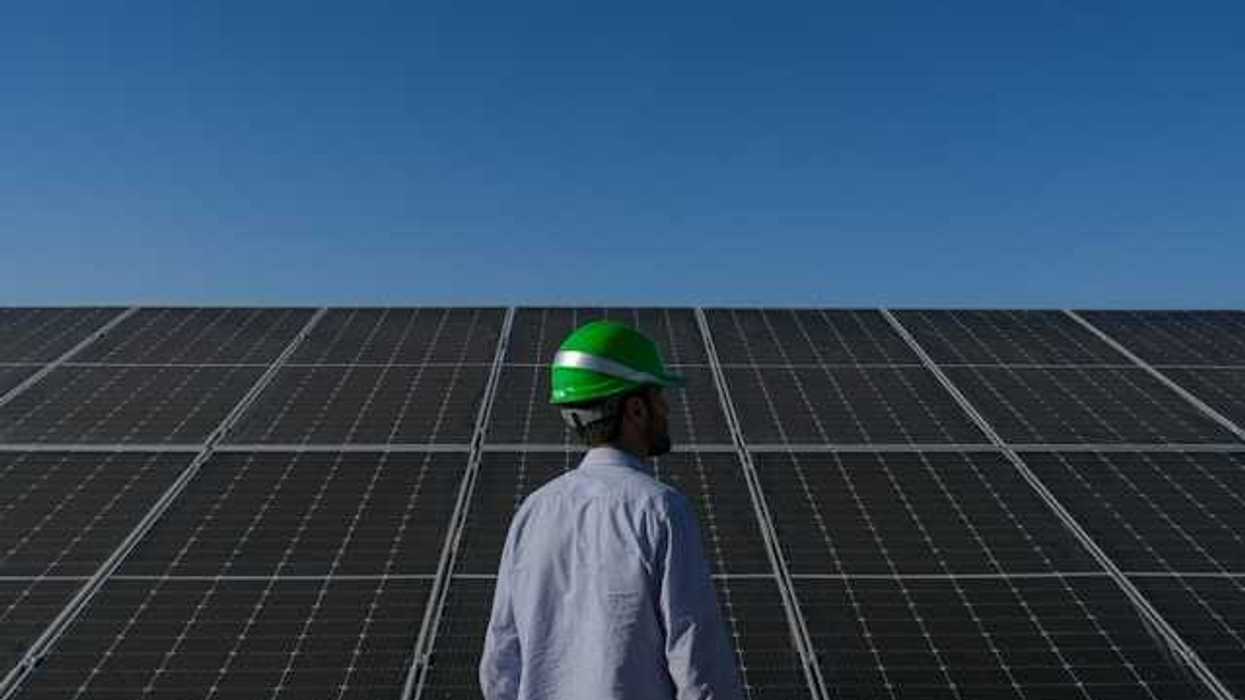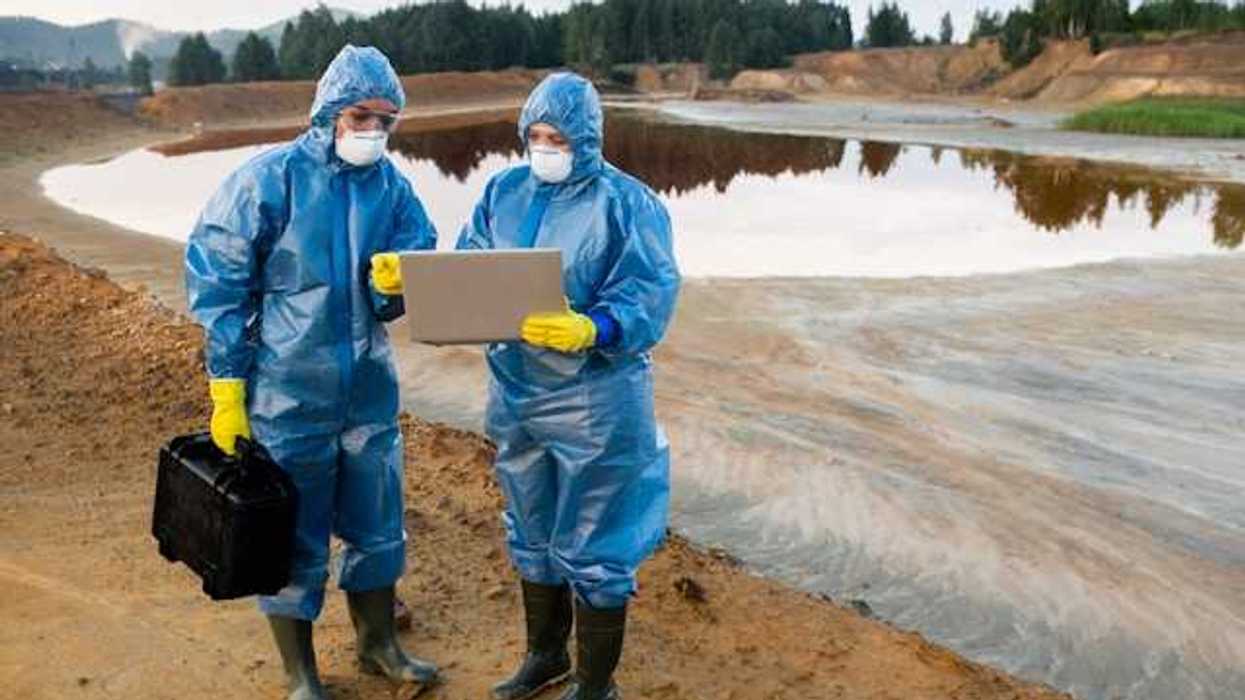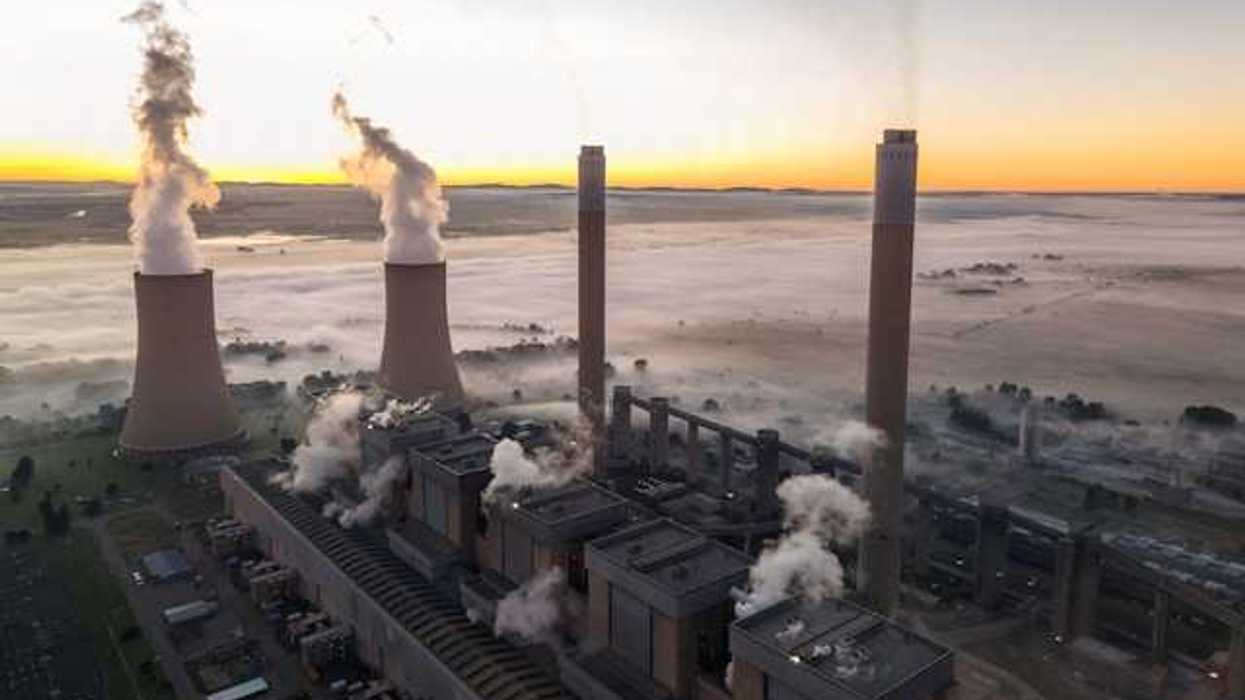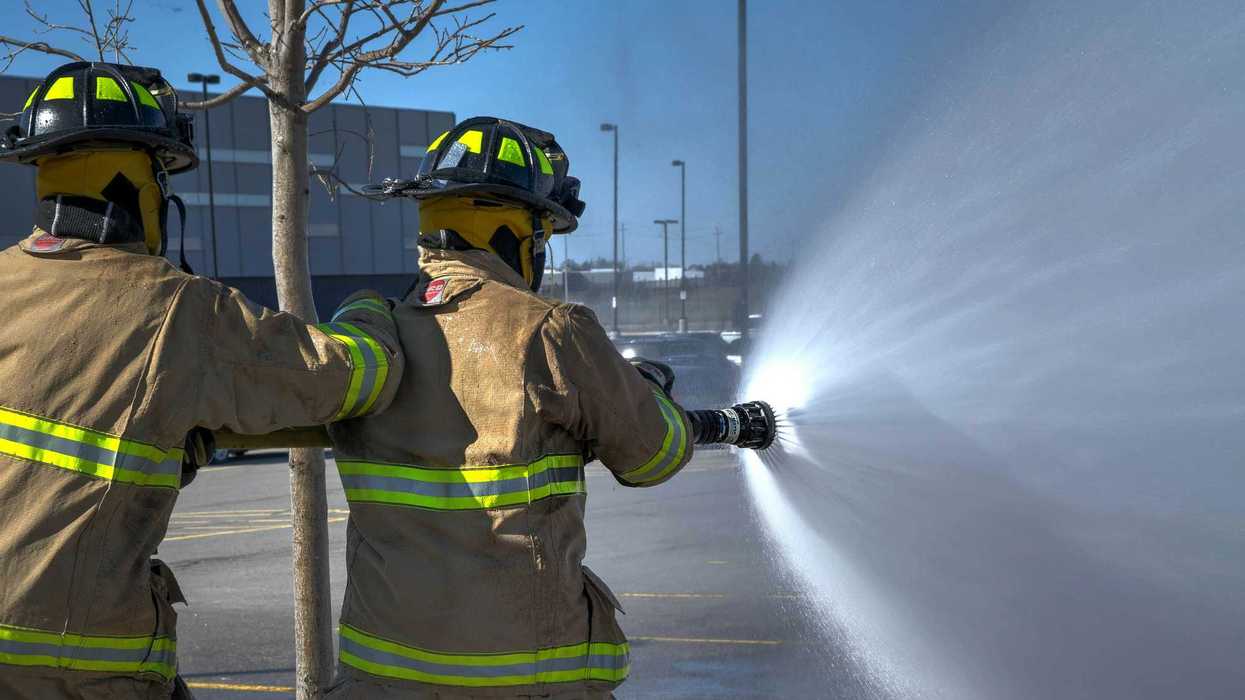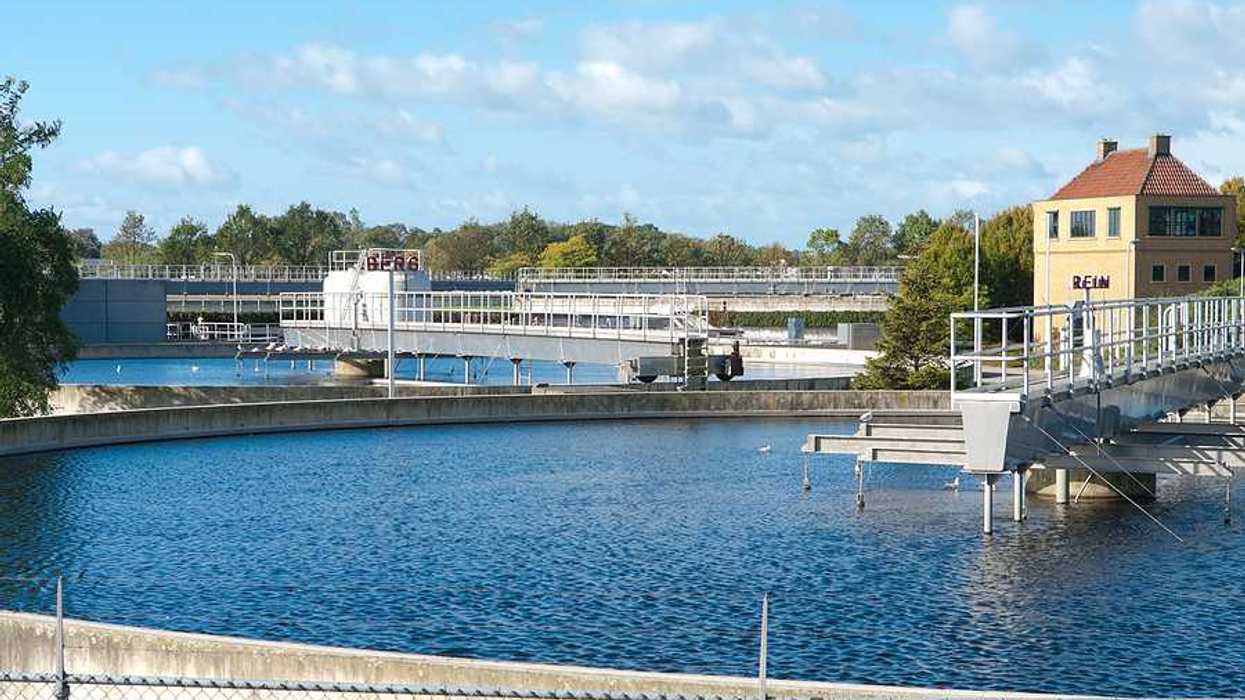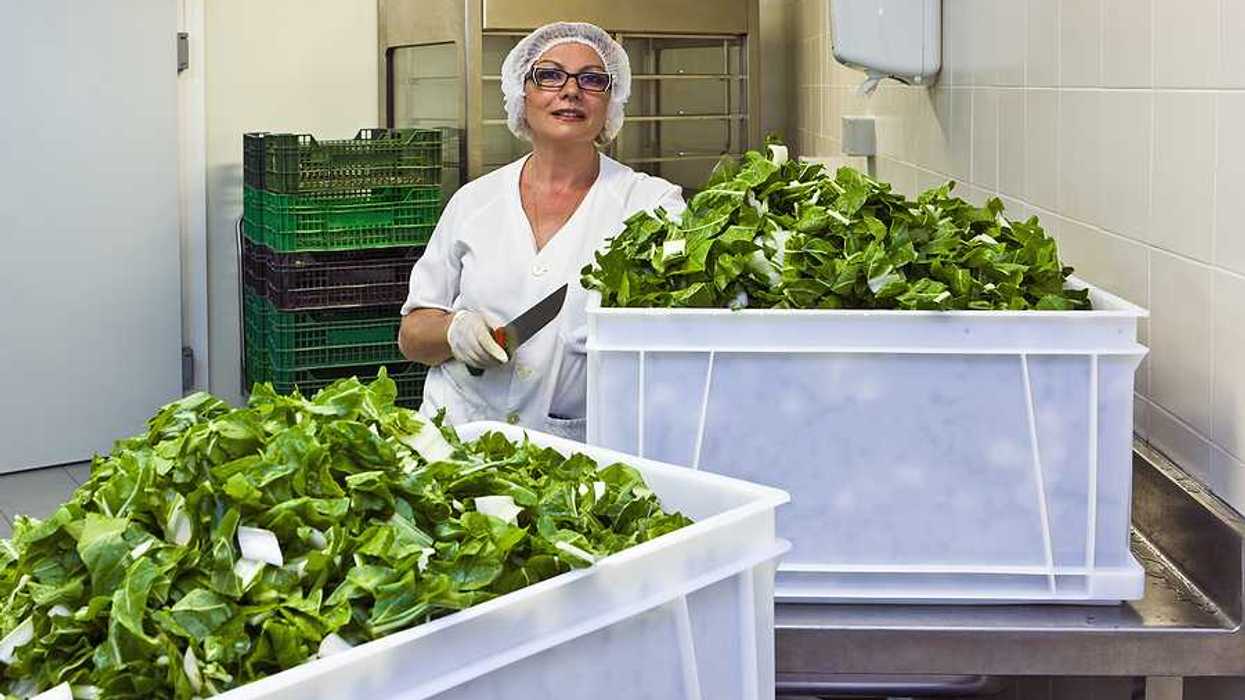Sometimes you just need the 2,500 foot view.
EHN founder and chief scientist Pete Myers recently took a plane ride high above his hometown of Charlottesville, Virginia, with Ali Nouri, who runs a Youtube channel called Above the Fray. Nouri—previously a legislative director for former Minnesota Democrat Sen. Al Franken—launched the channel to interview people working at the intersection of policy and science.
Myers hopped aboard the plane to discuss bisphenol-A (BPA), a controversial endocrine disrupting chemical common in plastics, canned food linings and thermal paper receipts. But, as Myers warns, BPA is just the tip of the iceberg.
"If it's on the shelf that does not mean it's been tested," Myers tells Nouri, an adjunct professor at George Washington University, where, when he's not taking interview subjects aloft, he teaches a course on alternative energy. "Only a tiny fraction of chemicals for sale today in consumer products have been seriously tested."
"Why?" Nouri asks.
"Because the regulatory system is operating under ground rules that reflect really ancient knowledge."
Check out their whole ride in the video above, and see all of Nouri's Above the Fray videos here.

